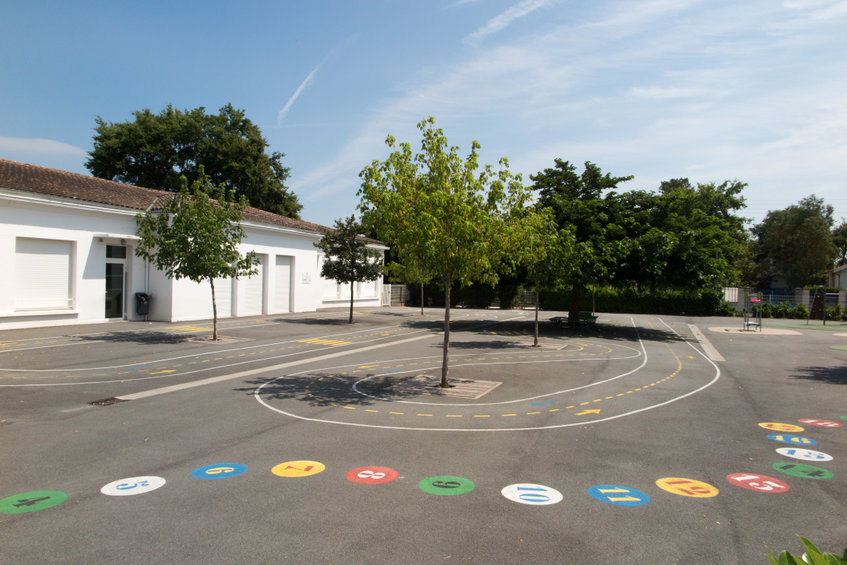
Asphalt is an extremely versatile material. Most of us think of roads and parking lots when we think of asphalt, and that makes a lot of sense. Unsurprisingly, the main use of asphalt is for roads—in fact over 94% of America’s roads are surfaced with asphalt, which totals about 18 billion tons. Additionally, almost 90% of airport runways are paved in asphalt, with about 3,360 commercial airports around the country covered in the smooth, durable product. But there’s a lot more to asphalt than just a pavement. From erosion control to parks and playgrounds, asphalt can be a benefit to many industries and professionals.
Asphalt can be a great tool in helping with urban flood control. Typically, you don’t want water to absorb into your asphalt because it will cause cracking and potholes. But with this permeable pavement concept, the water is meant to sink into an absorbent pavement which allows the water to infiltrate into the subgrade. It accumulates like a temporary reservoir under the ground and slowly dissipates into the subsoil. This process relieves stormwater surges in urban areas with high flooding risks. Asphalt can also help reduce soil erosion. This process uses an asphalt product spray directed onto a targeted area. When it hardens, it becomes a protective shield from water and wind’s erosive forces. It’s great for roadways where falling dirt and debris is constantly threatening cars below.
Because asphalt is environmentally friendly, many state and wildlife agencies use it in a variety of ways. Some fish hatcheries line their fish rearing ponds with asphalt pavements. Lining these ponds with asphalt is a durable way to maintain these facilities while also being confident the fish aren’t getting contaminated with leaking chemicals. Many landfills are lined with asphalt in an effective and safe barrier from leaks. With so many neighborhoods being built close to landfills, it’s comforting to know they’re creating a barrier that impermeable to harmful substances. Drinking water reservoirs and water line pipes are often lines with asphalt because the water is safe to for human use and consumption.
Agricultural communities and businesses also rely heavily on asphalt. Asphalt is durable, easy to clean, cost-effective, and fairly straightforward to install and keep up on repairs. Asphalt helps prevent animals from getting stuck in the mud and improves animal hygiene by keeping livestock areas clean. It can also extend the life of farm equipment due to less contact with mud and rocks. Asphalt works well on virtually any soil type simply by adjusting the thickness of the aggregate base material to match the farmer’s needs.
Many city planners opt for asphalt pavements for school and park playgrounds because the installation costs are lower than concrete, the lifespan is long, the surface is semi-flexible, maintenance costs are lower compared to concrete, and it has great traction for lots of little feet over the years. Asphalt is also often used as an adhesive coating for roofing shingles, making them a durable option for many homes.